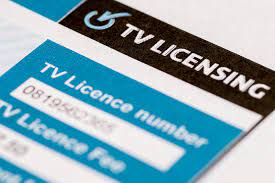
Who Can Still Have a Free TV Licence?
Historically free TV licences were available to people aged 75 and over. This had been the case from November 2020 until July 2020 and applied to 4.5 million households.
The licence fee is set to increase by £10.50 in 2024 to £169.50 with future funding under review. It’s guaranteed to be in place until 31st December 2027, and the new funding model needs to be sustainable in the long term. Currently, the flat rate means the poorest households pay the same as the richest.
Who can still have a free TV licence?
Since July 2020 only households containing someone aged over 75 who receives Pension Credit can have a free TV licence. Accordingly, this free licence covers everyone living at the property. You can apply for it online
You can also apply by phone by calling 0300 790 6071
If you live in sheltered accommodation or residential care, you can get a discounted TV licence. The discounted licence costs £7.50.
If you are Blind.
If someone is registered Blind or lives with someone who is, there is a 50% discount for the TV licence.
The licence must be in the blind person’s name – if it’s not, you can make a new application to transfer it into their name. You’ll need to provide your existing TV licence number when you apply.
Apply for a licence if you’re registered blind on the TV Licensing website.
History of the BBC TV licence.
The TV licence was introduced in 1904 by the Wireless Telegraphy Act. They became a permanent fixture with a subsequent Act in 1924. In 1936 when the BBC introduced television services it was covered under the existing radio licence. TV broadcasts were suspended during the Second World War, being reintroduced in 1946. It was then separate TV licences were introduced.
Colour licences were introduced in 1968 and black and white licences remain in place, although there were 4,200 black and white TV licences in force in March 2022. Radio licence fees were abolished in 1971.


Hi John,
Many thanks for taking the time and trouble to leave a comment here. I didn’t know that we all pay towards the “Free TV” licences so thank you for enlightening me. They are still however free to the elderly viewers which was my point. I think bearing in mind how much tax we are all charged it is welcome to know that some of it goes to making the lives of our elderly easier and not all abroad in overseas aid!
You do know that these are not free. The BBC claims the money back from the taxpayer so everyone including those claiming them is charged £20…………..nice little earner for the BBC, £550 million a year!